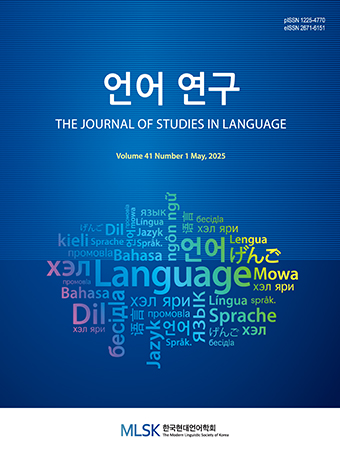Research Article
Abstract
References
Information
This study introduces the implementation of the DecoFESA platform, which proposes a hybrid approach to FbSA (Feature-based Sentiment Analysis) using the DECO-LGGs (Local Grammar Graphs based on DECO dictionary) assigned with dependency parsing and LSTM (Long Short-Term Memory). DecoFESA is developed to leverage DECO-LGG linguistic resources and NLP_HUB dependency parser to process semantic information and analyze sentence structures for Target, Feature, and Sentiment detection at sentence level. It also uses of one of the efficient deep learning algorithms, LSTM, to classify sentiments of OOV (Out of Vocabulary) texts. For the performance evaluation, we scraped 1,500,000 cosmetics reviews of online shopping malls by a crawler. DecoFESA shows the overall robust performance: 0.95 and 0.80 f-measure for POSITIVE and NEGATIVE with 0.845 and 0.83 accuracies for Target and Feature extraction, which manifests the efficiency and practicality of the hybrid approach to FbSA utilizing extensive DECO-LGG linguistic resources collaborated with dependency parsing and LSTM.
- 김한샘. 2003. 자연언어처리를 위한 관용표현 연구. 『한국어 의미학』 13, 43-68.
- 남지순. 2012. 오피니언 극성을 전환하는 한국어 부정표현 자동 인식을 위한 연구. 『언어와언어학』 57, 61-94.
- 남지순. 2018. 『코퍼스 분석을 위한 한국어 전자사전 구축방법론』. 서울: 도서출판 역락.
- 손진광. 2017. RNN LSTM과 ACO를 이용한 감성분석을 통한 컨텐츠 추천 시스템에 관한 연구. 『한국정보과학회 학술발표논문집』, 1033-1035.
- 최석재. 2012. 어휘의 부류와 감정 표현 관용구의 의미. 『한국어학』 55, 367-395.
- 최성용, 남지순. 2018. 소셜 미디어 텍스트의 의존명사 내포 비정규토큰의 부분문법그래프 패턴 사전 구축. 『한국사전학』 32, 114-150. 10.33641/kolex.2018..32.114
- 함영균, 임경태, 박정열, 윤용운, 최기선. 2012. Linked Data를 위한 세종 품사태그셋 온톨로지 구축. 『한국정보과학회 학술발표논문집』, 109-111.
- Alghunaim, A., M. Mohtarami, C. Cyphers, and J. Glass. 2015. A Vector Space Approach for Aspect Based Sentiment Analysis. Proceedings of the 1st Workshop on Vector Space Modeling for Natural Language Processing, 116-122. 10.3115/v1/W15-1516
- Choi, D., J. Park, and K. Choi. 2012. Korean Treebank Transformation for Parser Training. Proceedings of the ACL 2012 Joint Workshop on Statistical Parsing and Semantic Processing of Morphologically Rich Languages, 78-88.
- Garcia-Pablos, A., M. Cuadros, and G. Rigau. 2018. W2VLDA: Almost unsupervised system for Aspect Based Sentiment Analysis. Expert Systems with Applications 91, 127-137. 10.1016/j.eswa.2017.08.049
- Gross, M. 1997. The Construction of Local Grammars: Finite-State Language Processing. Cambridge: The MIT Press.
- Gross, M. 1999. Nouvelles Applications des Graphes d’Automates Finis a la Description Linguistique. Lingvisticae Investigationes 22, 249-262. 10.1075/li.22.15gro
- Hai, Z., K. Chang, and J. Kim. 2011. Implicit Feature Identification via Co-occurrence Association Rule Mining. Proceedings of the 12th International Conference on Computational Linguistics and Intelligent Text processing 6608, 393-404. 10.1007/978-3-642-19400-9_31
- He, R., W. S. Lee., H. T. Ng, and D. Dahlmeier. 2018. Effective Attention Modeling for Aspect-Level Sentiment Classification. Proceedings of the 27th International Conference on Computational Linguistics, 1121-1131.
- Hochreiter. S, and J. Schmidhuber. 1997. Long Short-Term Memory. Neural Computation 9.8, 1735-1780. 10.1162/neco.1997.9.8.1735 9377276
- Hu, M. and B. Liu. 2004. Mining Opinion Features in Customer Reviews. Proceedings of the 19th National Conference on Artifical Intelligence, 755-760.
- Huang, J., O. Etzioni., F. Zettlemoyer, K. Clark, and C. Lee. 2012. RevMiner: An Extractive Interface for Navigating Reviews on a Smartphone. Proceedings of the 25th Annual ACM Symposium on User Interface Software and Technology, 3-12. 10.1145/2380116.2380120
- Liu, B. 2012. Sentiment Analysis and Opinion Mining. Morgan & Claypool Publishers.
- Liu, B. 2015. Sentiment Analysis: Mining Opinions, Sentiments, and Emotion. Cambridge: Cambridge University Press. 10.1017/CBO9781139084789
- Mirtalaie, M. A., O. K. Hussain, E. Chang, and F. K. Hussain. 2018. Extracting Sentiment Knowledge from pros/cons Product Reviews: Discovering Features along with the Polarity Strength of Their Associated Opinions. Expert Systems with Applications 114, 267-288. 10.1016/j.eswa.2018.07.046
- Nam, J.-S. 2014. A Nouvel Dichotomy of the Korean Adverb Nemwu in Opinion Classification. Studies in Language 38.1, John Benjamins Publishing Company, 169-207. 10.1075/sl.38.1.05nam
- Paumier, S. 2003. De la Reconnaissance des Formes Linguistiques à l’Analyse Syntaxique. Ph.D. Thesis, France: Université de Marne-la-Vallée.
- Piao, S., P. Rayson., D. Archer, A. Wilson, and T. McEnery. 2003. Extracting Multiword Expressions with a Semantic Tagger. Proceedings of the ACL Workshop on MWEs, 49-56. 10.3115/1119282.1119289
- Samha, A. K., Y. Li, and J. Zhang. 2015. Aspect-Based Opinion Mining from Product Reviews Using Conditional Random Fields. Proceedings of the 13th Australasian Data Mining Conference, 119-128.
- Song, M., H. Park, and K. Shin. 2019. Attention-based Long Short-Term Memory Network Using Sentiment Lexicon Embedding for Aspect-level Sentiment Analysis in Korean. Information Processing and Management 56.3, 637-653. 10.1016/j.ipm.2018.12.005
- Thelwall, M., K. Buckley, and G. Paltoglou. 2012. Sentiment Strength Detection for the Social Web. Journal of the American Society for Information Science and Technology 63.1, 163-173. 10.1002/asi.21662
- Xue, W. and T. Li. 2018. Aspect Based Sentiment Analysis with Gated Convolutional Networks. Proceedings of the 56th Annual Meeting of the Association for Computational Linguistics, 2514-2523. 10.18653/v1/P18-1234
- Zhao, Y., B. Qin, S. Hu, and T. Liu. 2010. Generalizing Syntactic Structures for Product Attribute Candidate Extraction. Proceedings of the 2010 Annual Conference of the North American Chapter of the Association for Computational Linguistics, 377-380.
- Publisher :The Modern Linguistic Society of Korea
- Publisher(Ko) :한국현대언어학회
- Journal Title :The Journal of Studies in Language
- Journal Title(Ko) :언어연구
- Volume : 36
- No :4
- Pages :525-552
- DOI :https://doi.org/10.18627/jslg.36.4.202102.525




 The Journal of Studies in Language
The Journal of Studies in Language






